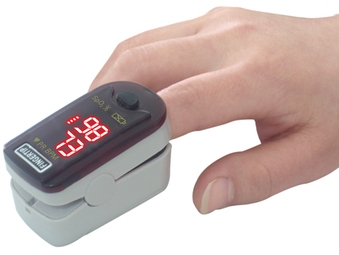October 25th, 2010 by DavedeBronkart in Better Health Network, Health Policy, Health Tips, News, Opinion, Quackery Exposed, Research
No Comments »

 There’s an extraordinary new article in The Atlantic entitled “Lies, Damned Lies, and Medical Science.” It echos an excellent article in our Journal of Participatory Medicine (JoPM) a year ago by Richard W. Smith, 25-year editor of the British Medical Journal, entitled “In Search Of an Optimal Peer Review System.”
There’s an extraordinary new article in The Atlantic entitled “Lies, Damned Lies, and Medical Science.” It echos an excellent article in our Journal of Participatory Medicine (JoPM) a year ago by Richard W. Smith, 25-year editor of the British Medical Journal, entitled “In Search Of an Optimal Peer Review System.”
JoPM, Oct 21, 2009: “….most of what appears in peer-reviewed journals is scientifically weak.”
The Atlantic, Oct. 16, 2010: “Much of what medical researchers conclude in their studies is misleading, exaggerated, or flat-out wrong.”
JoPM 2009: “Yet peer review remains sacred, worshiped by scientists and central to the processes of science — awarding grants, publishing, and dishing out prizes.”
The Atlantic 2010: “So why are doctors — to a striking extent — still drawing upon misinformation in their everyday practice?”
Dr. Marcia Angell said something just as damning in December 2008 in the New York Review of Books: “It is simply no longer possible to believe much of the clinical research that is published, or to rely on the judgment of trusted physicians or authoritative medical guidelines. I take no pleasure in this conclusion, which I reached slowly and reluctantly over my two decades as an editor of The New England Journal of Medicine.” (Our post on Angell is here.)
What’s an e-patient to do? How are patients supposed to research if, as all three authorities say, much of what they read is scientifically weak? Read more »
*This blog post was originally published at e-Patients.net*
September 20th, 2010 by IsisTheScientist in Better Health Network, Health Policy, Opinion, Research
10 Comments »

One of the disturbing trends I have been observing in physiology is the tendency to move away from many of the gold standard, invasive measurements classically described in the scientific literature to non-invasive measures which may or may not accurately reflect the parameter of interest.
One of these non-invasive measurements (which is not used in any of the manuscripts on my desk) that has become the bane of my existence is to use the saturation of hemoglobin in arterial blood (SPO2) as a surrogate for the partial pressure of arterial blood (PO2). SPO2 is measured with a device called a pulse oximeter.

Figure 1: A fingertip pulse oximeter. This device indicates that this individuals arterial hemoglobin is 98 percent saturated and his heart rate is 73 beats/min. Read more »
*This blog post was originally published at On Becoming a Domestic and Laboratory Goddess*
April 23rd, 2010 by StaceyButterfield in Better Health Network, Humor, Opinion, Research, True Stories
No Comments »

Here’s the first of many posts from Internal Medicine 2010 in lovely Toronto, Canada.
As you’d expect during a cardiology lecture, Steve Kopecky, FACP, reviewed lots of studies known by cool acronyms. He also explained why picking an inspiring name like “COURAGE” is important for your trial, based on his attempt to recruit a patient for the “BARI” trial:
“Oh no, doc, you ain’t gonna bury me,” the patient replied.
Because that joke was funny, I’ll forgive Dr. Kopecky the implied insult with which he began his lecture:
“The Wall Street Journal’s become one of the best medical journals you can read.” (Harumph.)
*This blog post was originally published at ACP Internist*
![]() There’s an extraordinary new article in The Atlantic entitled “Lies, Damned Lies, and Medical Science.” It echos an excellent article in our Journal of Participatory Medicine (JoPM) a year ago by Richard W. Smith, 25-year editor of the British Medical Journal, entitled “In Search Of an Optimal Peer Review System.”
There’s an extraordinary new article in The Atlantic entitled “Lies, Damned Lies, and Medical Science.” It echos an excellent article in our Journal of Participatory Medicine (JoPM) a year ago by Richard W. Smith, 25-year editor of the British Medical Journal, entitled “In Search Of an Optimal Peer Review System.”













